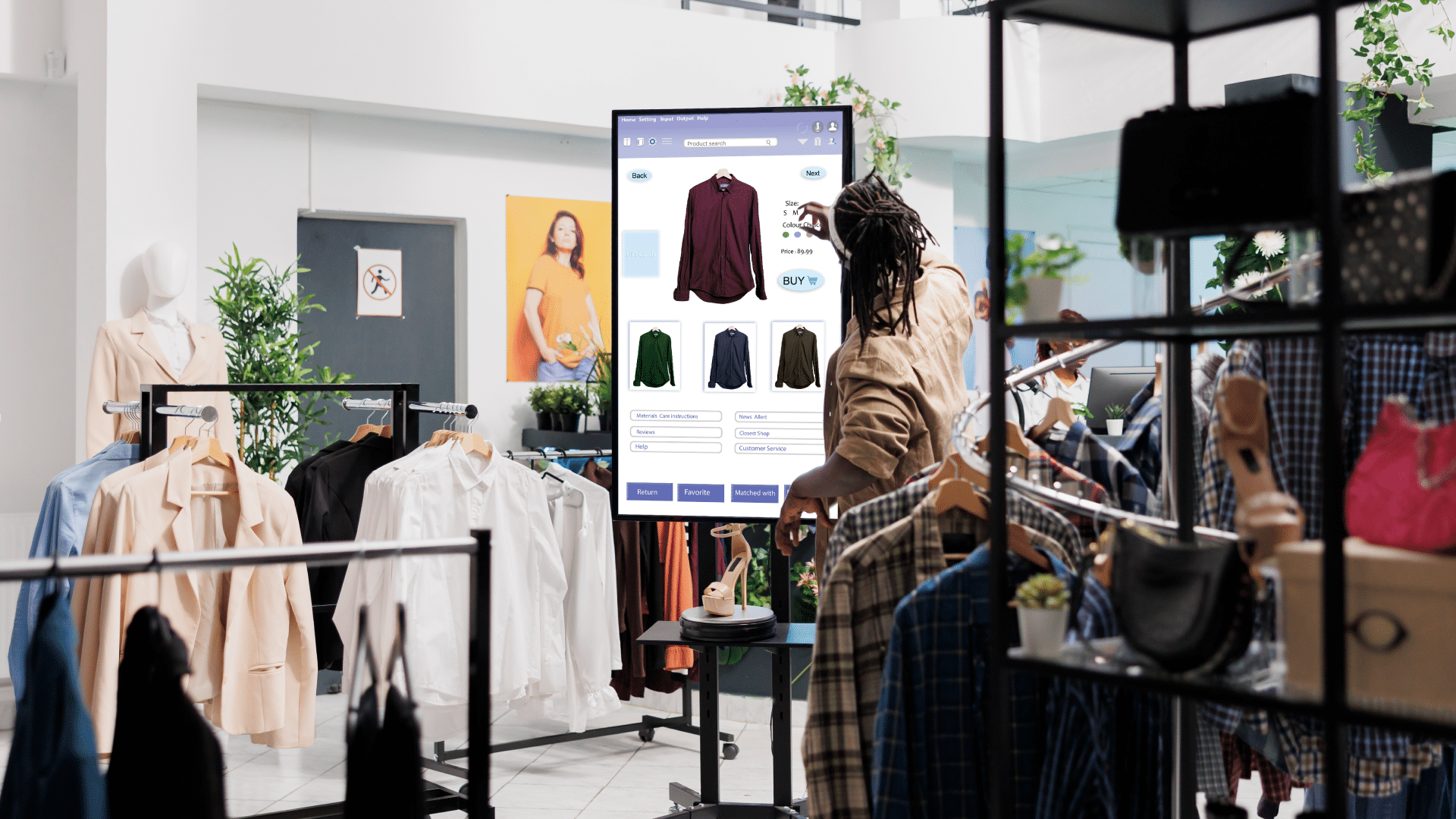This blog post explores top retail management software options in 2025, focusing on solutions that cater to various retail business needs. We’ll provide a concise overview of each platform, highlighting their key POS features, ideal users, and unique selling points to help retailers make informed decisions.
Whether you’re looking to streamline operations, improve inventory management, or expand your sales channels, this review showcases some of the most capable retail management solutions for different business models and sizes.
While numerous software options exist for retail businesses, these five stand out – KORONA POS, Square POS, Shopify POS, BigCommerce, and WhenIWork. From supporting high-risk retailers to empowering startups and facilitating multichannel sales, these systems offer tailored functionality for diverse retail operations.
Read on for more analysis of these retail management software options to determine which one might best serve your specific requirements and help drive your business forward.
Key Takeaways: Retail Management Software
- KORONA POS: Best retail management software for high-risk retail businesses
- Square POS: Best retail management software for startup retailers
- Shopify POS: Best retail management software for multichannel retailers
- BigCommerce: Best retail management software for eCommerce sales
- WhenIWork: Best retail employee management software
1. KORONA POS: Best Retail Management Software for High-Risk Retail Businesses
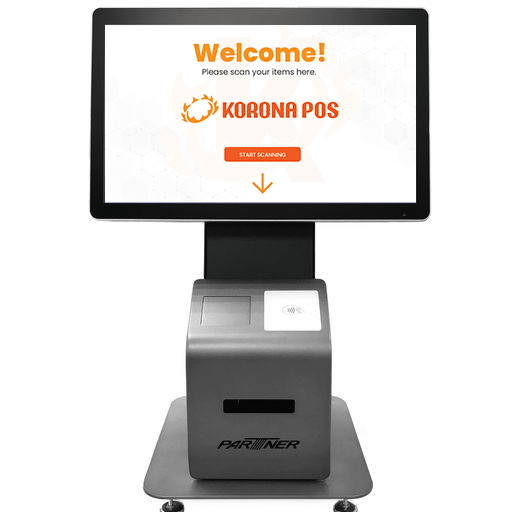
KORONA POS overview
KORONA POS is a cloud-based POS system tailored for small to medium-sized businesses. It is a comprehensive retail management solution designed specifically for high-risk industries such as cannabis dispensaries, CBD stores, vape shops, and liquor stores.
It offers features like age verification, inventory tracking, and compliance management to help businesses navigate complex regulatory environments.
The software also includes robust POS reporting tools, multi-location retail management support, and integration capabilities with popular payment processors and eCommerce platforms.

Pros
- Unlimited free trial
- Processing-agnostic
- Excellent customer support
- Robust inventory tracking
Cons
- Steep learning curve
- Not ideal for complex menus
- No warehouse management
Korona POS Pricing
Core
$59/mo
- Various reporting
- Product data base
- Promotions and gift cards
Retail
$69/mo
- Barcode automation
- Supplier interface integration
- Real-time tracking
Adds-on
From $10 to $50
- KORONA Plus
- KORONA Integration
- KORONA Invoicing
KORONA POS is headquartered in Las Vegas, Nevada, and primarily serves businesses in the United States. While it specializes in high-risk industries, the software is also used by various retail sectors, including convenience stores POS, dollar stores, thrift stores, and specialty retail shops.
KORONA POS offers cloud-based solutions, allowing businesses to access their data and manage retail operations with the software from anywhere with an internet connection.
Key Features
KORONA POS is recognized as one of the best retail management software solutions, particularly for high-risk retail businesses such as liquor stores, vape and smoke shops, CBD and tobacco shops, convenience stores, and dollar shops, due to several key features:
- Advanced inventory management: KORONA POS offers robust inventory controls crucial for high-turnover environments. This includes features like stock tracking, low-stock alerts, and automatic purchase orders to maintain optimal inventory levels and prevent stockouts.
- Processing agnostic: Unlike some POS systems locked into specific payment processors, KORONA POS integrates with any processing solution, allowing businesses to choose the best retail payment solutions and the provider with the best rates and features. The sales team can help you find the cheapest credit card processing solution based on your budget.
Find out how much you’re spending! Use our calculator below.
- Streamlined sales processing: KORONA POS boasts a user-friendly interface for a fast and efficient checkout experience, ideal for handling high customer traffic. This minimizes wait times and improves customer satisfaction.
- Multi-store management: For businesses with multiple locations, KORONA POS provides centralized control over inventory, sales data, and employee management across all stores.
- Customer management: KORONA POS helps build customer retention with features like loyalty programs and gift cards POS, encouraging repeat business.
- Reporting and analytics: KORONA’s reporting and analytics tools provide valuable insights into sales trends, popular items, and customer behavior. This data can be used to optimize inventory, marketing strategies, and overall business decisions.
Pros
- Scalability: The system is highly scalable, making it suitable for businesses of various sizes, from small shops to large retail chains. As businesses grow, they can easily add new registers, locations, and employees to the system without significant disruptions. This flexibility ensures that the POS system can adapt to changing business needs, making it a long-term solution that can grow alongside the business.
- Cloud-based system: KORONA POS operates on a cloud-based system, meaning data is stored online rather than on local servers. This system is beneficial for businesses with multiple locations or owners who need to monitor their business remotely. Additionally, cloud-based systems typically have automatic updates and backups, reducing the risk of data loss and ensuring the software is always up-to-date.
- Excellent customer support: KORONA POS provides exceptional customer support through various channels, including 24/7 phone, email, and chat assistance. This constant availability helps retailers minimize disruptions and downtime by offering help whenever needed. The company also facilitates a seamless transition for new users or those switching from other systems by offering remote training sessions for both management and staff, ensuring they can effectively use the KORONA POS system.
Cons
- Learning curve: The system may have a steep learning curve for some users. KORONA POS comes with a comprehensive set of features, which can be overwhelming for new users or those who are not tech-savvy. Training employees to use the system efficiently might require significant time and effort. However, this can be mitigated with proper training sessions and support from KORONA’s customer service.
- Limited integrations: KORONA POS may have limited integrations with other software systems. While it does offer several useful integrations, it might not support all third-party applications that a business uses. Businesses with specific software requirements should check compatibility before committing to KORONA POS to ensure it meets their integration needs.
Pricing
KORONA POS offers a variety of pricing plans to suit different business needs. Here’s an overview of their current pricing structure:
Subscription Tiers:
KORONA Core: Starting at $59 per month per terminal, this plan includes basic POS functionalities such as sales management, inventory tracking, and customer profiles. Additional features include a native gift card program and POS integration with eCommerce integration.
KORONA Retail: Priced at $69 per month per terminal, this includes all features of the Core plan plus advanced inventory management features, employee permissions, and customer loyalty programs. The system offers a supplier integration portal, enabling smooth data exchange between inventory control and vendor platforms. Additional inventory capabilities encompass intelligent barcode creation, automated reordering, and live inventory monitoring.
Add-on Modules:
- KORONA Food: +$10 per month per terminal – Ideal for restaurants and cafes, offering table service features
- KORONA Invoicing: +$10 per month per terminal – Enables sending invoices to clients and suppliers
- KORONA Ticketing: +$50 per month per gate – Suits amusement parks and similar businesses with ticketing needs
- KORONA Franchise: +$30 per month per franchise – For managing multiple franchise locations
- KORONA Integration: +$45 per month per token – Allows integrating KORONA POS with other business applications
All plans are month-to-month with no hidden fees, surcharges, or cancellation penalties. They include 24/7 customer support, training, and installation assistance. Additionally, KORONA POS offers an unlimited free trial to explore its features before committing to a subscription.
Schedule a KORONA POS Demo Today
Speak with a product specialist and learn how KORONA POS can power your business needs.
2. Square POS: Best Retail Management Software for Startup Retailers
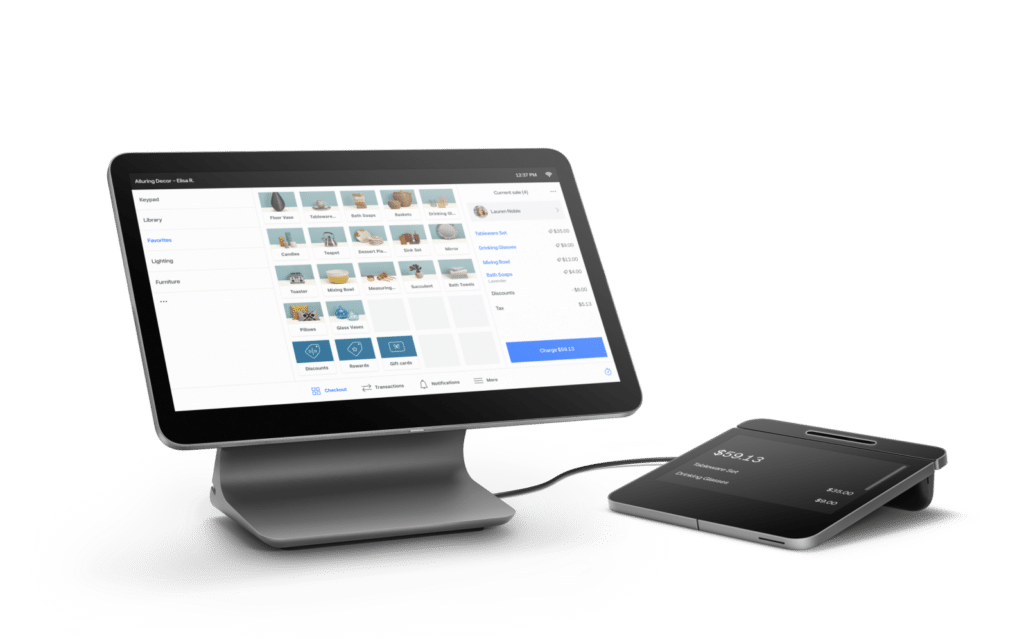
Square overview
Square POS is known for its user-friendly interface and affordable pricing, making it an excellent choice for startup retailers and small businesses. It offers a range of features, including inventory management, sales reporting, customer relationship management, and integrated payment processing.
Square POS also provides tools for online selling, appointment scheduling, and employee management, allowing new businesses to easily grow and expand their operations.
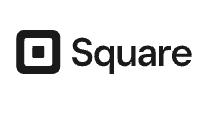
Pros
- Cost-effective for low-volume stores
- Simple inventory management
- Easy integration with Square ecosystem
Cons
- Unreliable hardware
- Locked into processing
Square Pricing
Free
$0/mo
- Barcodes and SKUs
- eCommerce Integration
- Simple inventory features
Plus
$89+/mo
- Enhanced reporting
- Employee tracking
- Inventory importing
Premium
Custom Pricing
- Individualized packages
- Advanced website tools
- Tailored processing rates
Founded in 2009 and based in San Francisco, California, Square has expanded its services globally. The company operates in numerous countries, including the United States, Canada, Japan, Australia, and several European nations.
Square’s ecosystem extends beyond POS software, offering additional financial services such as business loans, payroll management, and a digital wallet app. This makes it a versatile solution for businesses of various sizes and industries.
To learn more about Square, read this Square POS review and the differences between Square POS and Square Retail.
Key Features
Square Retail is a popular retail management software due to its comprehensive and user-friendly features that cater to various retail environments.
Square is suitable for a variety of retail types, including stores and specialty shops selling niche products, such as electronics, home goods, or sporting equipment. It’s also known as one of the best POS for salons. Here are five to six main key features that make Square Retail an excellent choice:
- Inventory management: Square Retail’s inventory management feature is robust and intuitive, allowing retailers to keep track of stock levels in real-time. This retail management software enables businesses to manage their inventory across multiple locations, set up low-stock alerts, and easily add or adjust items. Retailers can also generate reports to analyze stock performance and trends, which helps in making informed purchasing decisions and minimizing stockouts or overstock situations.
- Point of sale system: Square Retail’s POS system is designed to be fast and reliable, ensuring smooth transactions at the checkout. It supports various payment methods, including credit cards, debit cards, mobile payments, and gift cards. The POS system also integrates seamlessly with other Square tools, providing a unified platform for sales tracking, customer management, and reporting.
- Customer relationship management (CRM): Square Retail includes built-in CRM tools that help retailers manage customer interactions and build strong relationships. It allows businesses to collect and store customer information, track purchase history, and send personalized marketing messages.
- Sales reporting and analytics: Square Retail offers comprehensive reporting and analytics capabilities that provide valuable insights into business performance. Retailers can access detailed sales reports, track key metrics such as revenue, profit margins, and sales trends, and generate custom reports. It helps businesses identify opportunities for growth, monitor employee performance, and make data-driven decisions to optimize operations.
- Employee management: Square Retail’s employee management features simplify staff management. You can create employee profiles, set permissions and access levels, and track employees working hours and sales performance. The timecard functionality ensures accurate payroll processing, and managers can use the data to schedule shifts effectively and monitor productivity.
- Multi-channel selling: Square Retail supports multi-channel selling, enabling retailers to sell products both in-store and online. It ensures seamless integration between the physical and digital sales channels, providing a consistent customer experience.
Pros
- Comprehensive system: Square provides a wide range of features beyond payment processing, including inventory management, employee management, and reporting tools.
- User-friendly and easy setup: Square is known for its intuitive interface, making it a great choice for restaurants with little technical expertise. Many customers find the software easy to set up, and staff can quickly learn to take orders and process payments with minimal training.
Cons
- Not suitable for complex inventory: Square’s interface might not be ideal for retailers with intricate inventory or customization options. Handling orders for large groups or splitting checks can be cumbersome.
- Limited processing options: Square only offers its own payment processing, so you can’t use other processors.
Are payment processors
giving you trouble?
We won’t. KORONA POS is not a payment processor. That means we’ll always find the best payment provider for your business’s needs.
- Customer support: Free-tier users have limited access to customer support, which can be frustrating if issues arise. Even paid tiers may not offer 24/7 support.
Pricing
Square for Retail offers several pricing plans and associated fees tailored to different business needs:
Monthly Software Plans:
Free Plan:
- Monthly Fee: $0
- Features: Basic inventory tools, online store, and basic POS functionalities
- Processing Fees:
- In-person transactions: 2.6% + $0.10 per transaction
- Online transactions: 2.9% + $0.30 per transaction
- Manually keyed-in transactions: 3.5% + $0.15 per transaction
Plus Plan:
- Monthly Fee: $89 per location (some sources indicate $79, depending on the region)
- Features: Advanced inventory tools, barcode printing, cost-of-goods-sold (COGS) reports, profit margin reports, and more
- Processing Fees:
- In-person transactions: 2.5% + $0.10 per transaction
- Online transactions: 2.9% + $0.30 per transaction
- Manually keyed-in transactions: 3.5% + $0.15 per transaction
- Additional: A 30-day free trial is available for the Plus plan
Premium Plan:
- Monthly Fee: Custom pricing based on specific business needs
- Features: Tailored solutions for larger businesses, including one-on-one onboarding support
- Processing Fees: Custom rates are available upon contacting sales
Hardware Costs:
- Square Magstripe Reader: $0 (first reader free, $10 for additional readers)
- Square Reader for Contactless and Chip: $49 and up
- Square Stand for iPad: $149
- Square Terminal: $299
- Square Register: $799
Add-On Services:
- Customer Loyalty Program: Starting at $45 per month
- Marketing Services: Starting at $15 per month
- Payroll Services: Starting at $35 per month plus $6 per employee
- Email Marketing: Starting at $20 monthly for 0–500 customer contacts
- Text Message Marketing: Starting at $20 per month for 1–250 messages
Square’s POS system is noted for its ease of use, transparent pricing, and lack of long-term contracts or hidden fees. This makes it a popular choice for small to medium-sized retail businesses, although it may not be the best fit for very large retailers with more complex needs.
3. Shopify POS: Best Retail Management Software for Multichannel Retailers
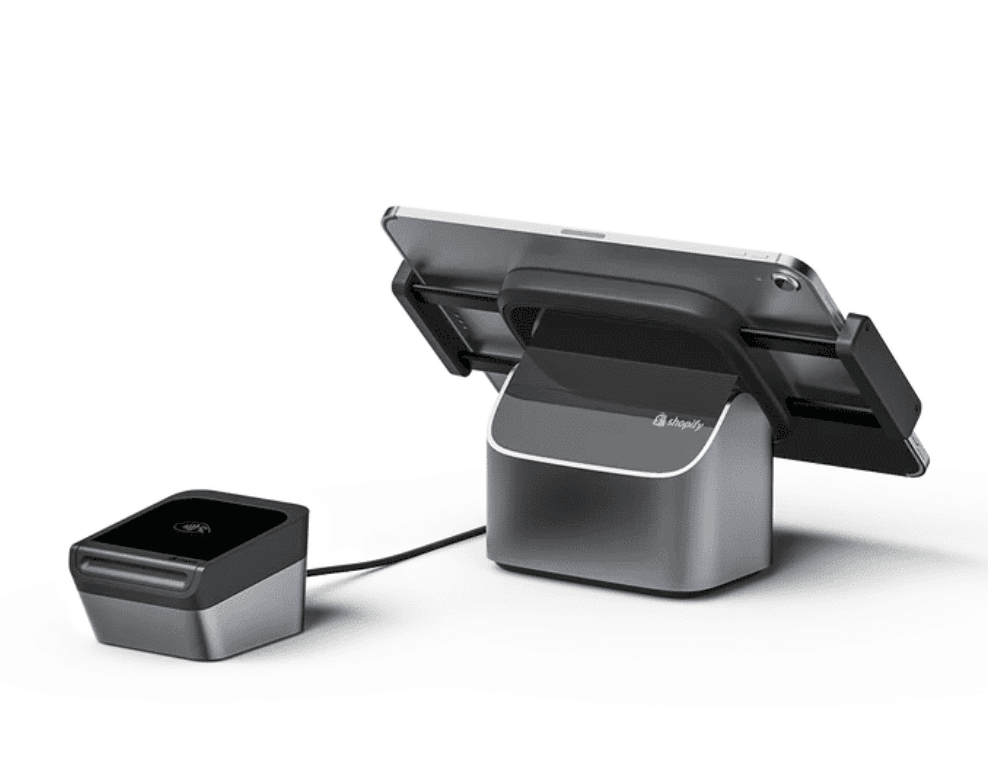
SHOPIFY POS overview
Shopify POS is designed to seamlessly integrate in-store and online sales channels, making it ideal for multichannel retailers. It offers features such as unified inventory management across all sales channels, customer profiles that sync online and offline data, and flexible fulfillment options like buy online and pick up in-store.
Shopify POS also provides robust analytics tools, allowing retailers to gain insights into their business performance across all channels.
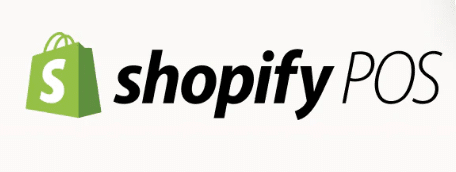
Pros
- Multiple locations
- QR code ordering
Cons
- Limited inventory management features
- Poor customer service
SHOPIFY POS Pricing
Basic
$29/mo billed once yearly
- Up to 77% shipping discount
- 10 inventory locations
- 24/7 chat support
Shopify
$79/mo billed once yearly
- Multi-location management
- Advanced inventory management
- Lightspeed Live app
- Contactless ordering
Advanced
$299/mo billed once yearly
- Multiple revenue center support for hotels
- Raw API access
Plus
$2300 on a 3-year term
- Personalized software and hardware package
- Dedicated support team and customer success manager
Shopify, the parent company of Shopify POS, is headquartered in Ottawa, Canada, but serves businesses worldwide. The platform is used by retailers in over 175 countries and supports multiple languages and currencies.
Shopify’s ecosystem includes not only POS and eCommerce solutions but also offers additional services like shipping, marketing tools, and financial services, making it a comprehensive solution for businesses looking to expand their reach globally.
Key Features
- Unified inventory management: As retail management software, Shopify POS seamlessly syncs inventory across online and offline channels in real-time. This allows retailers to manage stock levels, transfers, and reordering from a single dashboard.
- Customer profiles and purchase history: Shopify POS creates detailed customer profiles and tracks purchase history across all channels. This enables personalized marketing and loyalty programs based on individual shopping behaviors.
- Custom staff permissions: Shopify POS offers granular control over staff access. Managers can set specific permissions for different roles, ensuring security and accountability in retail operations.
- Flexible payment options: The software supports various payment methods, including split payments, partial payments, and store credit. It also allows for easy integration with third-party payment processors.
- Advanced reporting and analytics: Shopify POS provides in-depth reports on sales performance, inventory turnover, and staff productivity. It offers customizable dashboards and the ability to schedule automated reports.
Pros
- Multi-channel retail integration: Shopify POS excels at combining your online and brick-and-mortar operations. It offers synchronized inventory and unified customer data management across platforms, with features like curbside pickup bridging the digital-physical divide.
- Comprehensive inventory control: The platform provides powerful inventory management capabilities, including multi-location stock tracking, automatic low-inventory notifications, and analytical reports for optimizing stock orders.
- Built-in payment processing: Shopify Payments is natively integrated, offering transparent pricing and support for various payment methods, including credit cards and mobile payment solutions.
- Growth-friendly: Shopify POS accommodates businesses of all sizes, from small shops to expanding chains. It includes POS features for managing multiple locations, employee access controls, and sophisticated reporting tools to support business growth.
Cons
- Price point: Shopify POS can be relatively expensive, particularly for plans with advanced features. The combination of monthly fees and transaction costs may be significant. It’s crucial to assess your specific requirements and financial constraints.
- Limited customization: While user-friendly, Shopify POS offers restricted personalization options. The system’s interface and functionalities are largely pre-set, with minimal room for extensive modifications. This may not suit businesses seeking a highly tailored POS solution.
Pricing
Shopify POS pricing plan can be broken down into the following plans:
Main Subscription Plans:
- Basic Shopify ($29 per month billed annually): This is a good starting point for new businesses. It allows you to create a full online store, add unlimited products, and sell across multiple channels.
- Shopify ($79 per month billed annually): This plan offers everything in the Basic Shopify plan, plus features like abandoned cart recovery, discount codes, and gift cards.
- Advanced Shopify ($299 per month billed annually): This plan is suited for high-volume businesses. It includes everything in the Shopify plan, plus features like advanced reporting, carrier-calculated shipping rates, and up to 15 staff accounts.
- Plus: This plan is tailored for complex businesses, starting at $2,300 USD/month on a 3-year term. Features include competitive rates for high-volume merchants, custom reports and analytics, 200 inventory locations, priority 24/7 phone support, localized global selling in 50 markets, unlimited staff accounts, and fully customizable checkout.
Payment Processing Fees
- In-person transactions: 2.4% + $0.10 to 2.6% + $0.10, depending on your plan.
- Online transactions: 2.5% + $0.30 to 2.9% + $0.30, depending on your plan.
- Additional fees for using third-party payment providers (around 0,6% to 2%).
Hardware Costs
- Shopify POS Go: $429.
- Shopify Tap & Chip Card Reader: $49.
- Cash Drawer: $139.
- Receipt Printer: $269.
- Shopify Retail Kit: $219.
4. BigCommerce: Best Retail Management Software for eCommerce Platform
BigCommerce overview
BigCommerce is a powerful eCommerce platform that offers extensive customization options and scalability for online retailers. It provides features such as product management, order processing, customer segmentation, and multi-currency support.
BigCommerce also offers built-in SEO tools, various marketing features, and integrations with popular marketplaces and social media platforms, enabling businesses to expand their online presence efficiently.

Pros
- Depth and breadth
- Customization and flexibility
Cons
- Steep learning curve
- Limited themes and customization costs
BigCommerce Pricing
Standard
$29/mo billed once yearly
- Amazon/eBay/Walmart
- Facebook/Instagram
- Mobile responsive website
- BigCommerce mobile app
Plus
$79/mo billed once yearly
- Abandoned cart saver
- Persistent Cart
- Stored credit cards
- Products, file storage and bandwidth
Pro
$299/mo billed once yearly
- Multiple revenue center support for hotels
- Raw API access
Enterprise
Custom pricing
- Personalized software and hardware package
- Dedicated support team and customer success manager
Founded in 2009 and headquartered in Austin, Texas, BigCommerce has a global presence, serving customers in over 150 countries. The platform supports multiple languages and currencies, making it suitable for international eCommerce businesses.
BigCommerce is particularly popular among mid-market and enterprise-level companies, but it also caters to small businesses looking for a robust e-commerce solution with room for growth.
Key Features
- Product variants and options: Managing a vast product inventory can be a nightmare. BigCommerce offers a robust catalog management system that allows you to add, edit, and organize unlimited products with ease. You can create variations, set up bulk pricing for high-volume items, and even integrate with external systems for streamlined product information management. BigCommerce allows you to create up to 250 product options and 600 unique product variants per product.
- Currency and language support: BigCommerce offers features that facilitate international selling, such as the ability to display prices in multiple currencies and support for various languages through integrations like Weglot.
- Integration with marketplaces: BigCommerce allows you to sell on multiple channels, including popular marketplaces like Amazon and eBay and social media platforms such as Facebook and Instagram.
- SEO features: BigCommerce provides robust SEO tools, including customizable URLs, meta descriptions, and automated sitemaps, helping improve your store’s search engine rankings.
- Bulk pricing and custom price lists: You can set bulk pricing and create custom price lists for different customer groups, such as wholesale or retail customers.
Pros
- Depth and breadth: BigCommerce offers a wide array of built-in features that cater to various aspects of eCommerce, including advanced SEO tools, product management, marketing features, and multi-channel selling.
- Customization and flexibility: With robust APIs and a flexible platform, BigCommerce allows for extensive customization to tailor the online store to specific business needs.
- Handling growth: BigCommerce can accommodate businesses of all sizes, from small startups to large enterprises. As your business grows, the platform can scale seamlessly to handle increased traffic and transactions without compromising performance.
Cons
- Limited themes and customization costs: While BigCommerce offers a variety of themes, the selection is not as extensive as that of some competitors like Shopify. Additionally, many of the premium themes come at a high cost, ranging from $135 to $300, which can add to the initial setup expenses.
- Steep learning curve: Due to its comprehensive feature set, BigCommerce can be overwhelming for beginners. The platform’s complexity requires a significant amount of time and effort to learn and master, which can be a barrier for small businesses or those new to eCommerce.
- Support limitations: While BigCommerce offers customer support, some users have reported that the quality and responsiveness of support can vary. For complex issues, the support experience may not always be satisfactory, leading to delays in resolving problems.
Pricing
BigCommerce offers four main pricing plans, each catering to different business needs and sizes. Here’s a detailed breakdown of each plan:
Standard Plan: $39 per month
- Suitable for smaller ecommerce stores with annual sales up to $50,000.
- Includes features like unlimited products, file storage, bandwidth, staff accounts, and no transaction fees.
- Comes with basic reporting tools, professional reporting functionality, and POS integrations with third-party suppliers.
Plus Plan: $105 per month
- Designed for growing businesses with annual sales up to $180,000.
- All features of the Standard Plan plus customer segmentation, abandoned cart saver, and advanced customer grouping functionalities.
- Adds more advanced marketing tools and persistent cart options.
Pro Plan: $399 per month
- Targeted at larger businesses with annual sales up to $400,000.
- Includes all features from the Standard and Plus Plans, along with additional tools like Google customer reviews, product filtering, and custom SSL.
- Provides access to advanced product filtering and custom product fields for more detailed product management.
Enterprise Plan: Custom pricing
- Ideal for large businesses with annual sales over $400,000.
- Offers all features from the Pro Plan, with additional benefits such as unlimited API calls, advanced product filtering, comprehensive price lists for different customer groups, and priority support.
- Custom pricing is based on specific business needs and includes enhanced service and support options.
Additional Costs:
- Domain Names: Approximately $12.27 per year.
- Credit Card Fees: Varying rates depending on the processor used, typically between 2.2% + $0.30 and 2.9% + $0.30 per transaction through PayPal.
- Themes and Templates: Premium themes range from $135 to $300.
- Apps and Integrations: Many apps have monthly fees ranging from $9 to $50 per month.
- Ecommerce Insights: An optional add-on for more granular reporting, costing $49 per month for Standard and Plus users, $99 per month for Pro users, and $249 per month for Enterprise users.
BigCommerce’s pricing structure is designed to grow with your business, requiring upgrades as your sales increase. However, you can also downgrade if your sales decrease, ensuring flexibility in managing your eCommerce store’s costs.
5. WhenIWork: Best Employee Management Software
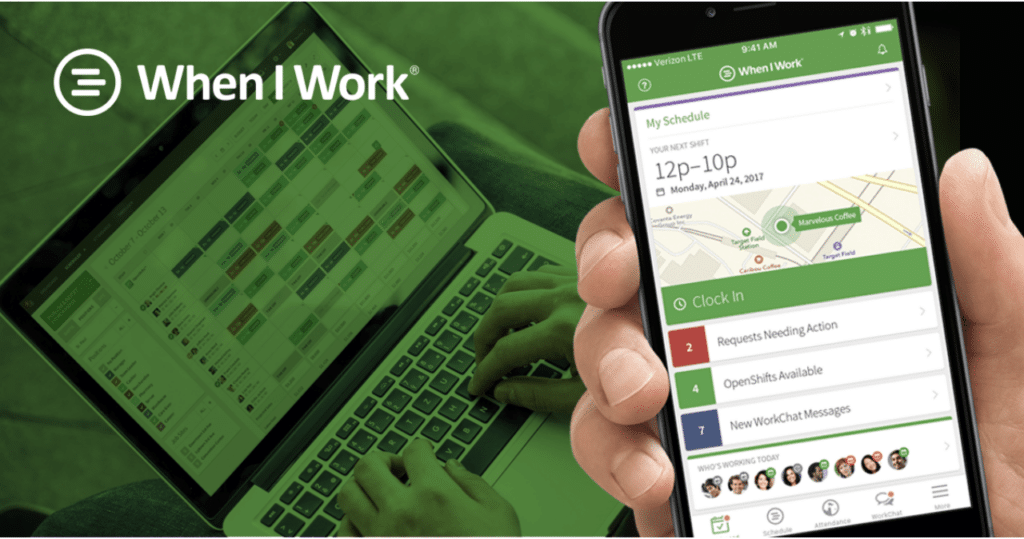
WhenIWork POS overview
WhenIWork is an innovative employee management software designed to simplify scheduling, time tracking, and communication for businesses of all sizes.
Its features include intuitive shift scheduling, automated time tracking, and real-time communication tools. WhenIWork also offers powerful reporting and analytics to help managers optimize labor costs and improve workforce productivity.
The software’s mobile app allows employees to view schedules, request time off, and clock in and out from their smartphones, making it a convenient solution for both managers and staff.
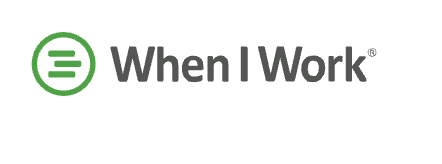
Pros
- Unlimited free trial
- Processing-agnostic
- Excellent customer support
- Robust inventory tracking
Cons
- Steep learning curve
- Not ideal for complex menus
- No warehouse management
WhenIWork Pricing
Essentials
$1.50/mo
- Unlimited users
- Auto scheduling
- Multi-week scheduling
Pro
$3/mo
- Advanced scheduling
- Scheduling rules
- Role permissions
Premium
$5
- API key access
- Webhooks
- SAML/SSO
Based in Minneapolis, Minnesota, WhenIWork serves businesses in various industries, including retail, hospitality, healthcare, and more. The company is dedicated to helping businesses streamline their workforce management processes and improve employee satisfaction. WhenIWork’s user-friendly interface and robust feature set have made it a popular choice for businesses in over 50 countries.
Key Features
WhenIWork is a robust retail management software designed to streamline various aspects of retail operations. Here are five to six key features that make WhenIWork a good choice as retail management software, along with an elaboration on each:
- Employee scheduling: WhenIWork offers comprehensive employee scheduling software that allows managers to create, manage, and communicate schedules easily. This feature reduces the time spent on scheduling and helps avoid conflicts and overlaps. Employees can view their schedules, request time off, and trade shifts directly through the app, enhancing overall productivity and satisfaction.
- Time and attendance tracking: Accurate time tracking is crucial in retail management. WhenIWork simplifies this process by allowing employees to clock in and out using their smartphones or other devices. It also tracks breaks and overtime, ensuring compliance with labor laws and company policies. The software can integrate with payroll systems, reducing errors and administrative burdens, which is essential for managing labor costs effectively in a retail setting.
- Communication tools: Effective communication is vital in retail, where staff may be spread across various locations or departments. WhenIWork provides a platform for managers and employees to communicate in real-time. Announcements, shift updates, and important notices can be shared instantly, ensuring that everyone is on the same page.
- Labor forecasting and analytics: Retail management software like WhenIWork offers labor forecasting tools that help predict staffing needs based on historical data and trends. This ensures that the right number of staff is scheduled during peak and off-peak times, optimizing labor costs and enhancing customer service.
- Mobile accessibility: Retail managers who can manage operations on the go have a significant advantage. WhenIWork is mobile-friendly, allowing managers and employees to access schedules, clock in/out, and communicate from anywhere. This flexibility is particularly beneficial for retail managers who need to oversee multiple locations or are frequently on the move.
- Integration capabilities: WhenIWork can integrate seamlessly with other essential retail management tools, such as payroll systems, POS systems, and HR software. This integration reduces the need for manual data entry, minimizes errors, and ensures a cohesive flow of information across various aspects of retail management.
Pros
- Streamlined scheduling and communication: When I Work excels at simplifying the scheduling process. Managers can easily create and publish schedules, while employees can view them, request time off, and swap shifts – all within the app. This reduces back-and-forth communication and keeps everyone on the same page. The built-in messaging features allow for quick communication regarding shift changes or team updates.
- Employee empowerment and flexibility: When I Work empowers employees by giving them more control over their schedules. They can request time off, set availability preferences, and even swap shifts directly with colleagues. This fosters a sense of autonomy and can improve employee satisfaction.
- Cost-effective for smaller teams: When I Work’s pricing structure scales with the number of active users, making it a very attractive option for smaller businesses or startups with a limited workforce. The basic plans offer the core scheduling and communication features at a reasonable cost.
Cons
- Limited features for larger businesses: While well-suited for smaller teams, When I Work’s feature set might feel limited for larger organizations. It lacks advanced functionalities like payroll integration, performance management, or robust reporting tools that some HR departments might require.
- Potential cost increase with larger teams: While the per-user pricing seems reasonable initially, the costs can add up quickly for larger companies with many employees, negating the initial cost-effectiveness for bigger teams.
- Limited customization: When I Work offers a user-friendly interface, but some users find it lacking in customization options. Scheduling rules and functionalities might not be adaptable enough for very specific industry needs or complex shift rotations.
Pricing
When I Work offers three pricing plans to cater to different business needs:
Essentials Plan:
- Cost: Starts at $1.50 per user per month.
- Features: Basic scheduling, shift templates, and color-coded positions and shifts.
Pro Plan:
- Cost: Starts at $3.00 per user per month.
- Features: All features of the Essentials Plan plus advanced scheduling, custom templates, and multi-location support.
Premium Plan:
- Cost: Starts at $5.00 per user per month.
- Features: All features of the Pro Plan plus additional tools like labor budget calculation and sales-based staff coverage.
What Is a Retail Management System?
A Retail Management System (RMS) is a comprehensive platform used by retail businesses to manage various aspects of their operations. It integrates a range of functions to streamline processes, improve efficiency, and enhance the customer experience. Key components and features of an RMS include:
Point of Sale Systems
Handles transactions, processes payments, and manages sales data. Modern POS systems often include features for inventory management, customer relationship management (CRM), and sales reporting.
Inventory Management
It tracks stock levels, orders, sales, and deliveries. It helps ensure that there is enough inventory to meet customer demand without overstocking, thus reducing costs.
Customer Relationship Management (CRM)
It manages customer data, tracks customer interactions, and helps businesses tailor their marketing and sales efforts to improve customer satisfaction and loyalty.
Sales Reporting and Analytics
It provides detailed insights into sales performance, customer behavior, and market trends, helping businesses make data-driven decisions.
Employee Management
It schedules staff, tracks hours and manages payroll. It can also include tools for performance tracking and employee communication.
eCommerce Integration
It connects in-store and online sales channels, providing a unified view of sales and inventory. This ensures consistency and improves the overall customer experience.
Supply Chain Management
It helps coordinate the movement of goods from suppliers to stores, optimizing order fulfillment and delivery processes.
Loyalty Programs and Promotions
It manages customer loyalty programs, discounts, and promotional campaigns to drive sales and customer retention.
Security Features
It protects against data breaches, fraud, and theft, ensuring the integrity of customer and business information.
How To Choose the Best Retail Management Software?
To choose the best retail management software, consider the following key factors:
- Business needs: Assess your specific requirements, such as inventory management, point of sale functionality, customer relationship management (CRM), and reporting capabilities.
- Scalability: Ensure the software can grow with your business and accommodate multiple locations if needed.
- Integration: Look for software that integrates well with your existing systems and third-party applications.
- User-friendliness: Choose a system that’s intuitive and easy for your staff to learn and use.
- Cloud-based vs. on-premises: Decide whether you prefer cloud-based software for accessibility or on-premises solutions for more control.
- Mobile capabilities: Consider software with mobile features for managing your business on-the-go.
- Customer support: Evaluate the level and availability of customer support offered by the software provider.
- Cost: Compare pricing structures and ensure the software fits within your budget.
- Security features: Verify that the software has robust security measures to protect sensitive data.
- Reporting and analytics: Ensure the software provides comprehensive insights into your business performance.
Retail Management Software: FAQs
Which Software is Best For Retail Business?
The best software for a retail business often depends on specific needs like inventory management, sales tracking, and customer management. Popular options include KORONA POS Lightspeed Retail, Shopify, and Square for their comprehensive features and user-friendly interfaces.
What Is the Best POS Software for Retail?
When choosing the best POS software for retail, consider ease of use, integration capabilities, and customer support. Systems like Square POS, Shopify POS, and Lightspeed Retail POS are highly recommended for their robust features tailored to retail operations.
Conclusion: Retail Management Software
In conclusion, the retail management software landscape in 2024 offers diverse solutions to meet the varied needs of modern retailers. From KORONA POS’s capabilities for high-risk businesses to Square POS’s startup-friendly features, Shopify POS’s multichannel strengths, BigCommerce’s robust eCommerce platform, and WhenIWork’s employee management tools, there’s a solution for every retail niche.
As you consider your options, remember to assess your specific business needs, growth plans, and budget constraints. The ideal solution will not only address your current challenges but also scale your business as it evolves.
Ready to see how KORONA POS can transform your retail operations? Sign up for a free demo today and experience firsthand how our software can meet your unique business needs.

